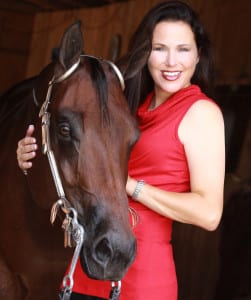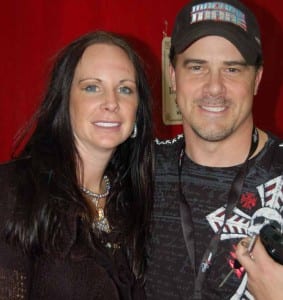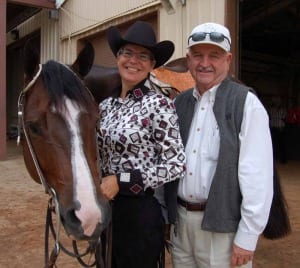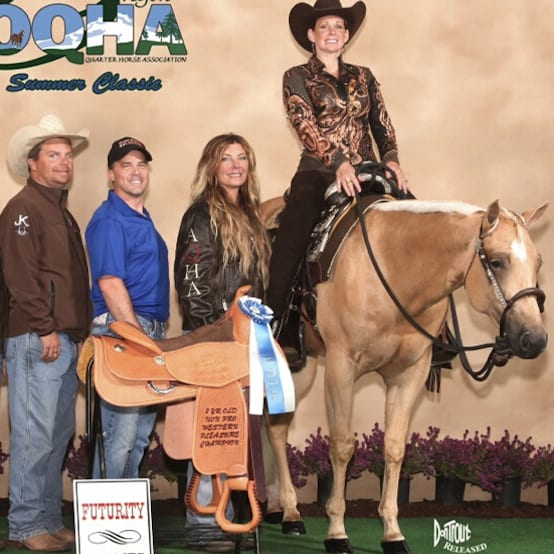It’s an age-old question: Is it better to buy a young prospect, or should you raise your own? Of course, it depends on who you ask, but we wanted some answers straight from those who are well-versed in the area of prospects. Our lineup of experts: Anne Prince of Prince Farms in Palmetto, Florida; Dr. Candice Hall of Black Creek, British Columbia; Elizabeth “Spike” Roberts of Wilson, North Carolina; and Josh and Kaleena Weakly of Shelbyville, Illinois.
Raising Your Own – The Benefits
It’s no secret to most horse people that raising your own horses can be highly rewarding, and our experts admit there’s no denying that benefit. “One of the reasons we have been doing it over 25 years is the personal satisfaction,” explains Prince, a world champion breeder and owner of Prince Farms with her husband, Chester. “I’m excited about the WCHA and AQHA owner-breeder-exhibitor alliance classes because they reward the people willing to take that risk. As a breeder, there’s no greater satisfaction than having yours become a world champion – it truly is experience that is obtainable. There are so many steps to the process to get to the show pen and when it all falls together, it’s just exhilarating. “
 For Brewer (pictured right), who has raised many world champions including APHA World Champion, All Rise, the perks of watching them being born and just interacting with them each day far outweigh any negative aspects. “It’s just the best feeling to watch them enter the world and get to be the first person to ride them. I truly have a passion for it that was passed on to me by my dad, and even if I won the lottery and could afford any horse in the world, I would still try to raise them, “ she says.
For Brewer (pictured right), who has raised many world champions including APHA World Champion, All Rise, the perks of watching them being born and just interacting with them each day far outweigh any negative aspects. “It’s just the best feeling to watch them enter the world and get to be the first person to ride them. I truly have a passion for it that was passed on to me by my dad, and even if I won the lottery and could afford any horse in the world, I would still try to raise them, “ she says.
Hall, the owner of Machine Made, has experienced the phenomenon of raising foals as both stallion and mare owner. “Creating a foal that carries a piece of your own mare or stud, or both, is indescribably exciting. As a stallion owner, nothing makes me more proud than creating a foal out of a show mare that I love out of a stallion that is my horse of a lifetime. There can be surprises – many genetic traits are multi-factorial and the traits of great grandparents can show up. You don’t get to choose the color or the sex or the mind of the baby, but playing the genetic odds, there is a really good chance you will see the sire and dam in the offspring.”
Although the Josh and Kaleena Weakly, who are known for their halter and all-around titles, are more likely to buy than raise their own, they have discovered those positives, too. “I have only recently started breeding my show mare, Hours Yours And Mine, but it’s more of a sentimental value for me than anything else. There is a lot of pride and joy that comes from breeding and raising foals out of a treasured show mare. And when the day comes that one of mine makes it to the show pen, I know I won’t be able to put a price on that,” exclaims Kaleena.
Raising Your Own – The Drawbacks
Despite all the amazing benefits to raising a foal, there are some disadvantages to keep in mind, too, according to the experts.

“With breeding, it can take years before you get the offspring you’re looking for and there are also many costs that build up over time. And then with the riding prospects, it’s two more years until they may make it into the show pen. So depending how long it takes to breed for that foal you’re wanting, it could be just as expensive,” comment the Weaklys.
Brewer agrees that raising a foal is not easy and not cheap, and that factors like proximity of a veterinarian should be considered. “It will easily cost you at least $2,500-$5,000 to get the baby here with stud fee, vet care and fees, shipping, etc., and that is if the mare carries her own baby. If you are looking at pulling embryos, you would need to add another $3,000 to $5,000 to that figure. For the past two years, we have started foaling out our own mares out to cut down on cost. The catch with babies is that during foaling, if something goes wrong it needs addressed quickly and you need to be educated and ready if you have to intervene. Not only is there a lot of money and time that goes into raising them, but it’s emotionally hard and stressful at times. However, I find it’s worth it.”
Prince adds that personal choice comes into play as well: “The con of breeding is that you’re stuck with what you bred, versus the advantage of being able to go out and select what you want in a show prospect.”
Buying a Prospect – The Advantages
“One of the main benefits of buying for us is the time factor,” explain the Weaklys. “We usually know what we want and can go find it within a few months. Whether it’s ready to go in the show pen or needs some work, we at least know the foundation we are working with. The cost with buying has its positives, like showing sooner and getting what you want for your money,” they explain.
 Hall has purchased many prospects over the years as well with mixed results. “What I did have control of was my choice of color, gender, amount of white, conformation, and to some extent, movement. The big question was always trainability and attitude because babies change so much. Sometimes they grow longer or taller than you imagine, or they are huge yearlings and don’t grow at all. Sometimes a non-jogger turns into a 9 or 10 plus jogger when you start riding. You just never know what is going to happen until you put weight on their backs.”
Hall has purchased many prospects over the years as well with mixed results. “What I did have control of was my choice of color, gender, amount of white, conformation, and to some extent, movement. The big question was always trainability and attitude because babies change so much. Sometimes they grow longer or taller than you imagine, or they are huge yearlings and don’t grow at all. Sometimes a non-jogger turns into a 9 or 10 plus jogger when you start riding. You just never know what is going to happen until you put weight on their backs.”
Buying a Prospect – The Cons
Overall, the initial cost of buying a horse is front and center as a drawback. “It’s definitely more costly right up front,” say Kaleena Weakly. “It can cost hundreds of thousands of dollars to go out and buy a finished show horses,” agrees Hall.
Brewer points out some less obvious but noteworthy factors of purchasing. “You need a good eye or a trainer with a good eye to find a talented one and you still take the risks when you buy them before they are ridden. I’ve seen the most wicked-legged yearlings fall apart when you start training on them and they are carrying 200 lbs. on their backs!”
The Summary
 So when it comes time to make some choices, what’s one to do? Our experts advise to do what’s right for you. “I think people have to evaluate it on a personal level,” says Prince (pictured left).
So when it comes time to make some choices, what’s one to do? Our experts advise to do what’s right for you. “I think people have to evaluate it on a personal level,” says Prince (pictured left).
“Honestly, I think there are pros and cons to doing it each way. But the greatest satisfaction is that feeling when you are the last one standing in your world show arena and you are on a horse that you raised. Many folks can say they were the last one standing, but only a select few can say it was with one they raised,” adds Brewer.
“The bottom line: dollars and cents, it might save stress and money and time to buy a prospect, like I did when I bought Lemonmade, by my own stallion, Machine Made out of the great mare Zip N Therapy,” explains Hall. “Either way, you’re supporting the industry. But since watching a baby grow up into a show partner is exciting, too, this is what I’ve concluded over time: it’s all about the journey.”








